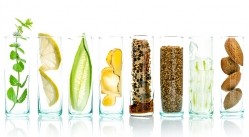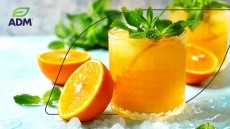News in brief
Move over carmine… New variety of sweet potato can deliver ‘fire engine red’ natural colors, says Chr. Hansen

“Over 10 years ago, we discovered a promising pigment in a root vegetable’s tuber, but the plant’s pigment content was on the low side. We took this plant and embarked on a process of selective breeding using traditional, non-GMO methods. The result is a plant-based, brilliant red that gives our customers a natural alternative to carmine and synthetic colors,” said Jakob Dalmose Rasmussen, VP commercial development at Chr. Hansen Natural Colors.
“Strawberry red is a popular shade for food products – from cakes to confectionary to milkshakes. But until now it has been nearly impossible to make a fire-engine red color with no risk of off-taste without using carmine,” he said.
“And as consumers move towards vegetarian and vegan food choices, the need for a carmine alternative has become more pressing."
It can withstand baking and extrusion
So how does it compare to other natural reds?
"Our Hansen sweet potato is more heat stable than beet colors, for example," Pernille Borre Arskog, senior manager, global marketing at Chr. Hansen's natural colors division told FoodNavigator-USA.
"Like beet, it provides a bright pink color on its own in cake because of the white or yellow background color. However, when mixed with an orange pigment like Paprika, beta-carotene or orange carrot, then it provides a nice stable red shade that can withstand the baking process.
"It also works in applications like extruded cereals where the color is exposed to both high heat and high pressure."
More light-stable than beets
Asked about light sensitivity, she said: "In most applications, our Hansen sweet potato is more light stable than beet and other red fruit based or anthocyanin based. It generally has a similar or slightly better light stability and stability towards oxidation as other vegetable based red colors like black carrot and red radish, but is more stable than fruit-based red anthocyanins like aronia and elderberry. Though carmine is in general the most heat and light stable natural red color, our new Hansen Sweet potato is a good substitute."
"It is a good carmine alternative in applications including jelly gummies, water ice, panned products (chocolate dragees), sponge cakes, cookies, crackers, extruded cereals, fruit fillings, fermented milks, milk shakes, petfoods, and in Europe also emulsified meat.
"The benefit of our Hansen sweet potato is that it doesn’t create an off-flavor over time like radish does and it is more red than other sweet potato types in the market.
"Beet is a pinkish red pigment with a very low cost-in-use – but it is not heat and light stable and it is more pinkish. Black carrot is also a more cost-efficient pinkish-red solution, but if there is a need for a bright red stable solution, then black carrot might be too pinkish or dull at higher pH.
Pernille Borre Arskog, senior manager, global marketing at Chr. Hansen's natural colors division
How does pH impact the shade?
As for what happens in high pH applications, which can be problematic for some natural red shades, which can change color, she said: "Anthocyanins, including our Hansen sweet potato, are sensitive to pH and the shade changes to more purple or bluish when pH increases. In an alkaline environment, anthocyanins will start to degrade, and thereby brown and/or fade away.
"Depending on the source material anthocyanins, can be red, pink or purple at low pH and can shift differently. Hansen Sweet potato is very red at low pH and brighter red/pink at a higher pH than, for example, Black Carrot would be, but like any other anthocyanin, prefers to be in an acidic environment and would be less stable when pH increases."
Chr. Hansen’s FruitMax Orange and FruitMax reds are based on Hansen sweet potato blends, and meet the EU requirements for coloring foodstuffs. Hansen sweet potato is also trademarked.
Interested in natural and clean label trends?
REGISTER HERE for the March 20 FoodNavigator-USA Natural and clean label trends online event, and hear from Annie's, Simple Mills, Luvo, Otis Spunkmeyer, Hartman Group, Pollock Communications, Venable, Ingredion, DuPont Nutrition & Health, Kemin, Foodscape Group and JBT/Avure.
Click HERE for more details about the event, which is sponsored by Ingredion, DuPont Nutrition & Health, and Kemin, and supported by Cargill, herbafood and Farbest Brands.























